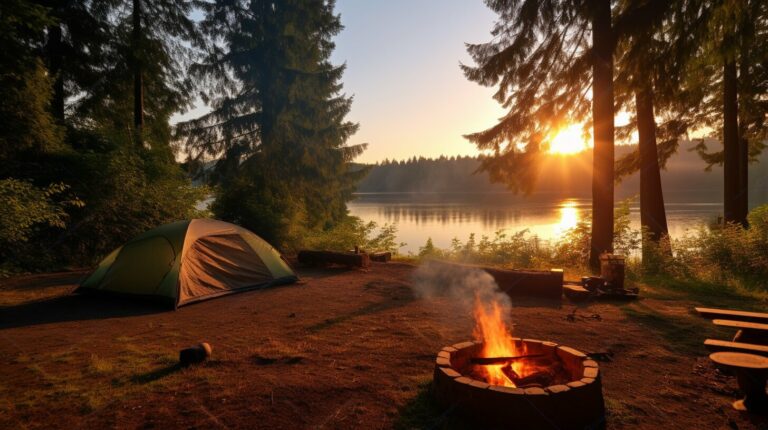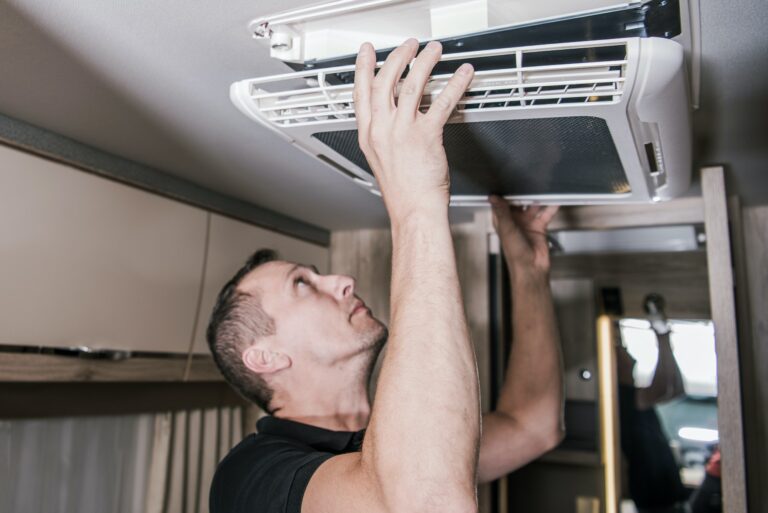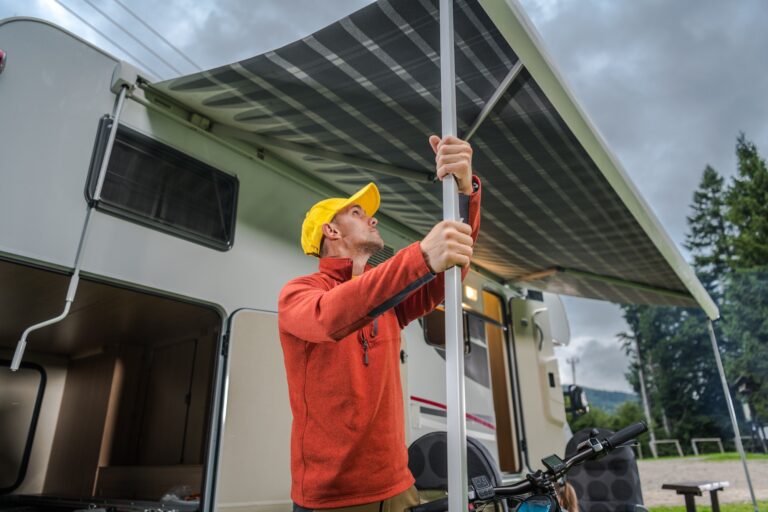When considering the purchase of an RV, one of the most significant decisions you’ll face is whether to buy new or used. Both options come with their own set of advantages and drawbacks, so it’s essential to weigh the pros and cons carefully. In this comprehensive guide, we’ll explore the benefits and disadvantages of purchasing a new versus a used RV, arming you with the knowledge you need to make an informed decision.
1. Buying a New RV: Pros and Cons
Pros of Buying a New RV
- Latest Features and Technology: New RVs come equipped with the most up-to-date features, amenities, and technology. This can include energy-efficient appliances, improved insulation, advanced entertainment systems, and enhanced safety features.
- Customization: When buying a new RV, you often have the option to customize the layout, colors, and features to suit your preferences and needs. This can result in an RV that feels tailor-made for you and your lifestyle.
- Warranty and Support: New RVs typically come with a manufacturer’s warranty, which can provide peace of mind and financial protection should any issues arise during the warranty period. Additionally, buying from a reputable dealer often means ongoing support and access to their service department.
- Less Maintenance: A new RV will generally require less maintenance than a used one, at least in the beginning. This can save you time, money, and stress in the early years of ownership.
Cons of Buying a New RV
- Higher Price: New RVs often come with a higher price tag than their used counterparts. This can mean a larger down payment, higher monthly payments, and increased insurance costs.
- Depreciation: New RVs tend to depreciate rapidly, especially during the first few years of ownership. This means you could lose a significant portion of your investment if you decide to sell your RV within a few years of purchase.
- Potential for Manufacturing Defects: While new RVs come with warranties, there is still the possibility of encountering manufacturing defects or other issues that were not caught during the quality control process.
2. Buying a Used RV: Pros and Cons
Pros of Buying a Used RV
- Lower Price: One of the most significant advantages of buying a used RV is the lower price, which can make RV ownership more accessible for those on a budget. A lower purchase price can also mean lower monthly payments and reduced insurance costs.
- Slower Depreciation: Used RVs have already experienced the most significant depreciation, which occurs during the first few years of ownership. This means that, as a used RV owner, you may not lose as much money if you decide to sell your RV in the future.
- More RV for Your Money: Buying a used RV can allow you to get more features, amenities, and overall size for your budget. This means you may be able to afford a higher-end model or a larger RV than you would if purchasing new.
Cons of Buying a Used RV
- Unknown History: When buying a used RV, you may not know its complete history, including how well it was maintained, any previous accidents, or hidden damage. This can make it challenging to assess the true condition of the RV.
- More Maintenance: Older RVs often require more maintenance and repairs than newer models. This can lead to increased costs and time spent on upkeep.
- Limited Selection and Customization: When shopping for a used RV, you are limited to the inventory available in the market, which may not include the specific model, layout, or features you desire. Additionally, customization options are limited compared to buying new.
3. Factors to Consider When Choosing Between New and Used
- Budget: Consider your budget and the total cost of ownership, including purchase price, financing, insurance, maintenance, and repairs. Determine which option best aligns with your financial goals and comfort level.
- Usage: How often do you plan to use your RV, and for what purpose? If you plan to live in your RV full-time or take frequent extended trips, a newer model with updated features and amenities may be worth the higher price. However, if you only plan to use your RV occasionally for short trips or weekend getaways, a used RV might be a more economical choice.
- Mechanical Aptitude: Are you comfortable tackling maintenance tasks and minor repairs yourself? If so, a used RV could be a good fit, as you may be able to save money on upkeep. If you prefer to leave maintenance and repairs to professionals, a new RV with a warranty might be the better option.
- Lifestyle Preferences: Consider your preferences for RV features, layout, and amenities. Are you willing to compromise on these for a lower price, or do you prioritize having the latest technology and comforts? Assess your priorities and choose the option that aligns with your desired lifestyle.
4. Tips for Buying a Used RV
- Research: Investigate the specific make, model, and year of the RV you’re considering. Look for common issues, recalls, and owner reviews to get a sense of the reliability and performance of the RV.
- Inspection: Have a professional RV inspector or mechanic evaluate the used RV before purchase. They can identify potential problems, assess the condition of the RV, and provide an estimate for any necessary repairs.
- Maintenance Records: Ask the seller for maintenance records to understand how well the RV has been cared for and to identify any potential red flags.
- Test Drive: Take the RV for a test drive to ensure it handles well and that all systems are functioning properly.
- Negotiate: Don’t be afraid to negotiate the price of a used RV. Use your research and inspection results to justify your offer and potentially secure a better deal.
5. Conclusion: Making the Right Choice for You
Ultimately, the decision to buy a new or used RV comes down to your personal preferences, priorities, and financial situation. Carefully consider the pros and cons of each option, and use the factors discussed in this guide to help determine which choice best aligns with your needs and goals.
By conducting thorough research, seeking professional advice, and taking the time to understand your lifestyle and budget, you can make an informed decision and find the perfect RV for your adventures.
To summarize, here are the main points to consider when deciding between a new and used RV:
- New RV Pros: Latest features and technology, customization, warranty and support, less maintenance.
- New RV Cons: Higher price, rapid depreciation, potential for manufacturing defects.
- Used RV Pros: Lower price, slower depreciation, more RV for your money.
- Used RV Cons: Unknown history, more maintenance, limited selection and customization.
Happy RV shopping, and may you find the perfect home-on-wheels for your adventures!






